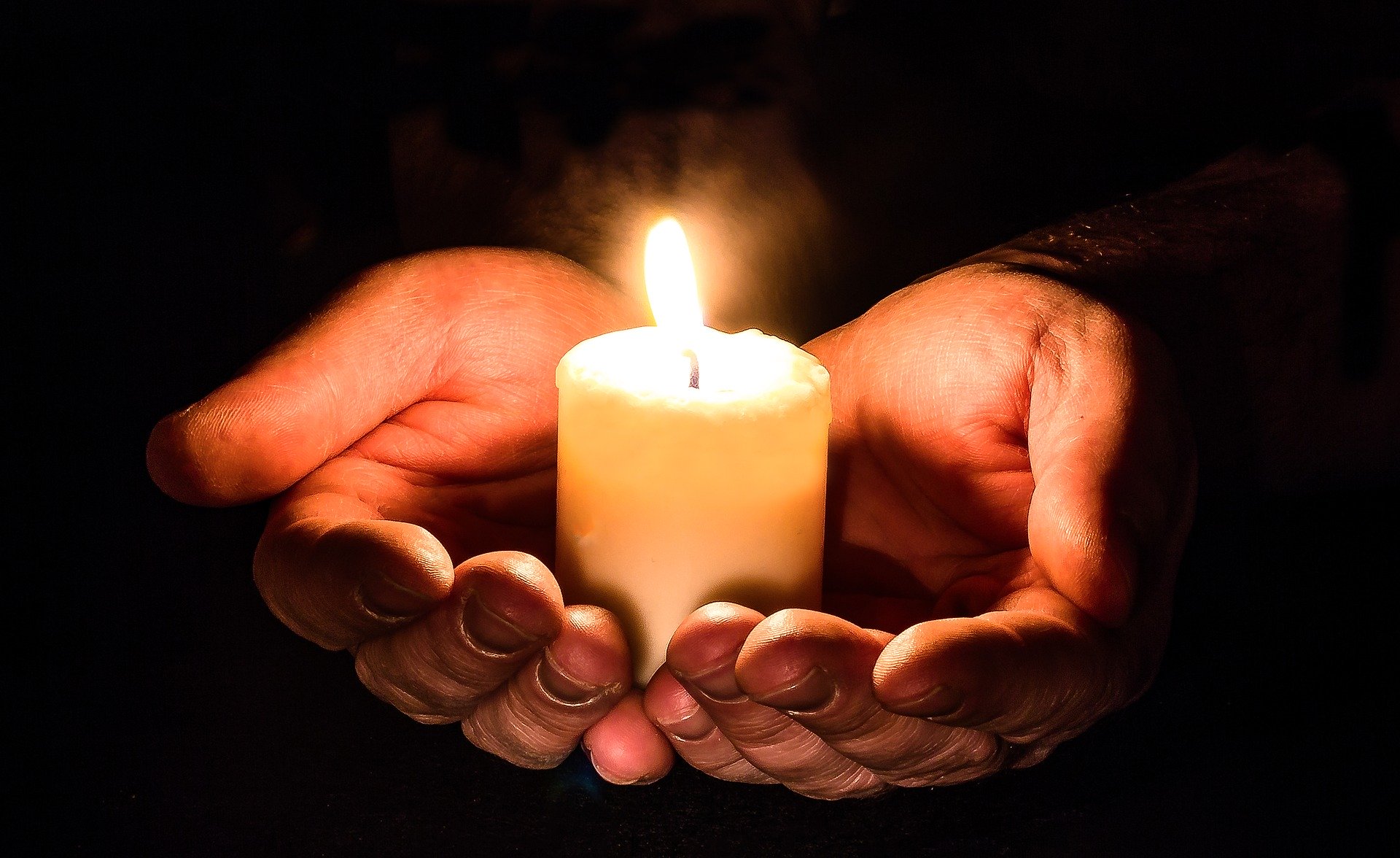
Why setting healthy boundaries in relationships is important
I’d always have a very hard time understanding boundaries, let alone building some for myself. The reason was because I wasn’t taught how to create healthy boundaries or what it meant.
In my family, boundaries were always very blurred. This was something I came around understanding after going to therapy and doing the deep work on understanding myself and others. Everyone in my family was all up in everyone’s business. Most might think that’s sweet or even as it should ideally be, especially in a huge family like mine. with my five elder siblings and a stepbrother. But caring about one another, showing love and support is VERY different from being all up in each other’s business. I’ve grown up seeing people judge, blame, control and lecture one another on how to live life, what’s considered right or wrong and how exactly to solve problems, even very personal ones. And that set the tone of boundaries for me as a young child. And this is what I believed for a long time – ¨In loving, healthy and caring relationships, there are no boundaries. Boundaries mean you don’t love the other person or you don’t respect them¨.
I couldn’t have been farther from the truth here though.
Not very long ago I met with a pain and trauma specialist. With his 30 years of experience in the field he has invaluable insights into living a healthy, happy and fulfilling life. He’s taught me so many valuable lessons, but one of the things that clung to me the most was the way he talked about boundaries.
He told me that most people believe that in loving relationships there shouldn’t be too many boundaries or that boundaries don’t express love. But that’s not the case at all. Boundaries are in fact very important to create loving, healthy and lasting relationships. If you lack boundaries or have very vague ones, it can affect your relationships badly and more importantly it can leave you feeling drained, overwhelmed, taken advantage of, unappreciated and more.
So what are boundaries?
Boundaries, simply put, are rules that you have for what behaviours you will accept and what you will not accept. If you don’t want to talk about a certain subject with your friend and you let them know that, that’s a boundary you’ve set. Boundaries have to do with setting limits, just like many parents do with kids when they tell them ¨It’s never ok to hit someone when you are angry¨.
What if I don’t know what my boundaries are?
Sometimes it’s not easy to know what your boundaries are but you can check in with your feelings if you’re not sure. Your guide should be to check in with your feelings. If you feel uncomfortable, forced to do something, made to feel guilty, drained by other people telling you their problems or maybe even anxious when you’re around them, that is a sign for you to set clearer boundaries with them. So check in with yourself by identifying what emotions you are feeling, especially if you feel bad very regularly in certain peoples company.
How can you know if someone is crossing your boundary?
There are many ways you can know this. To begin with, going back to the previous point, there is a feeling that something is wrong. It could be something someone said or did that doesn’t feel right. If you’re tolerating completely unacceptable behaviours from people, that’s your sign they are clearly crossing your boundaries. And when you tend to feel upset regularly after talking to someone or being with someone, that’s a sign that your boundaries are being crossed. Being controlled by others, told what to do constantly, being put down in any way, shouted at, triggered constantly, getting dragged into others drama over and over again all fall into boundaries being crossed.
What should I do if I know my boundaries are being crossed?
Communicate that to the people who are crossing your boundaries. They need to know what you think is OK and what you don’t think is an OK way to act and behave with you. Tell them how you feel and what makes you uncomfortable or how you would like things to be instead. It’s very important to be clear with people what your boundaries are, because only when they know what you want and what you don’t want can they either change that when they are with you or choose not to. But your job is only to communicate your boundaries, not worry about their response.
Why do we willingly accept bad behaviour at times?
Most of the time you have an innate feeling that you shouldn’t be tolerating certain kinds of behaviours from people, no matter who they are. But the problem is, you don’t listen to that feeling. And even if you do, while you know you should say something or even get away from the person causing you pain, you stay in the relationship or just stay silent.
You instead end up blaming yourself? Do you think that on some level you deserve this treatment because there must be something you have done to deserve it?
Why? Fear and self-blame is the culprit here.
A very common reason for not setting boundaries is usually that it’s family we are dealing with or very close friends or a romantic partner. They know you, including your weaknesses. So they might be shifting the blame to you when you happen to mention that you don’t like something they said or did. Making it your fault they behaved the way they did, and making you feel as if you’re too sensitive and too stuck up. This is a horrible but very well-known strategy to gain control over people. Keeping the power with them and taking it away from you. So you don’t have a say and things stay the way they are.
In other words, they take zero responsibility for their behaviour and somehow make it all your fault.
This kind of behaviour and these kind of people are just highly toxic to your health, soul, mental and emotional wellbeing. It’s best to get away or significantly reduce contact with such people, even if it feels hard. Because letting them treat you badly can make you feel worse. Staying too long in such relationships can even lead to you believing they are right.
It is not your fault! They are trying to confuse you. So, don’t fall into the trap of false guilt.
Since we usually love our family, romantic partner and they love us in the way they can, we think it’s OK for them to treat us badly, especially when they also do treat us very well at times. That feeds confusion within and instead of standing up for yourself or leaving, you stay in the relationship and you remain confused, waiting and hoping that something will change.
My message to you is only one thing. No matter if they are family, a spouse, parents or whomsoever, no one has the right to treat you badly. Especially when it’s a repetitive behaviour, more like a way of being with you – where there is no regard for how you feel and what you need. If they don’t care enough to change their ways, you need to either leave or reduce contact immensely. Setting boundaries with parents, for example, can be something like you hanging up the phone when they start crossing your boundaries. If they won’t stop or change, you need to protect yourself in what ways you can.
This might stir up some things within like, ¨What does this mean? Am I in a relationship I shouldn’t be in?¨. You’re the only one who knows the answer to this question.
But no matter what your case may be right now, just getting this new awareness can be lifechanging. If nothing else, you can know for sure that you have the right and you must stand up for yourself when your boundaries are being crossed (when you are treated badly for example). Saying things like “No, this is not OK” or “I won’t tolerate this kind of behaviour any longer” are sentences you can say to enforce to a person that you have boundaries and you will not have them trampled upon. It might take you several tries to get them to understand but don’t give up, don’t stand for bad behaviour because you deserve better. And if they don’t get it, no matter how hard you’ve tried to set boundaries and explain and fix things, its time to leave that relationship and honour your wellbeing.
If you feel too overwhelmed to leave or reduce contact significantly, try setting boundaries with them in ways you can control. Doing some of the following things when they cross your boundaries can be a start; hanging up the phone, asking them to leave or removing yourself from that situation/place, saying no more often, reduce the times you meet with them.
Remember, the only one who can teach people how to treat you in a respectful, loving way is you. Be their guide, show them how you want to be treated. Don’t tolerate what you know and feel isn’t right, ever. You deserve to be treated with respect, love and dignity.

Finally, here’s a summary of what we’ve talked about,
1. Identify what your boundaries are
Check in with your feelings. Identify what you don’t like and whom you keep feeling bad or uncomfortable around.
2. Know if someone is crossing your boundaries
Observe their behaviour and notice if they constantly do the same bad behaviour with you which always leaves you feeling things like anxiety, upset, irritation or anger etc.
3. Communicate your boundaries as clearly and openly as you can
Make sure they understand what you want, how you feel and how you would like your relationship to be like instead. Do your very best here to be as clear and honest as possible. You will have to do this several times with most people until they hopefully get it because it takes time to change behaviours.
4. End or reduce contact if necessary
If they still don’t change after you having told them many times, either end that relationship or reduce contact significantly.
5. If ending isn’t feasible, find ways to protect yourself
If you feel overwhelmed and can’t or don’t want to leave the relationship, create ways to protect yourself and gain control.
I hope this article was helpful to you. If you liked it, please give it a thumbs up and share it with your friends and do leave a comment! And if you’re interested in coaching with me, click here to know more.
With Love,
Selma






Leave a Reply